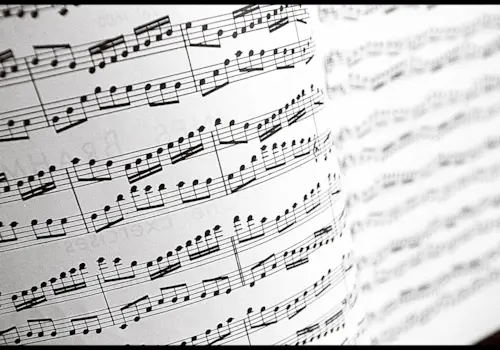What is the best product to use? Will certain disinfectants damage the keys? Does the advice differ depending on what material my keys are made out of? We answers all of your questions below...
The current coronavirus pandemic has heightened our concern over the cleanliness of our own homes, and ourselves.
The piano is one such object that can be a hotbed for germs if you do not look after it properly, and especially if you are regularly leaving the house for groceries and exercise.
We want you to not only keep yourself entertained at home by playing your piano, but we also want you to keep safe doing it.
How long will COVID-19 live on my piano for?
Viruses tend to last longer on plastic coated surfaces than on wood. For those of you with plastic keys, make sure you are extra vigilant when disinfecting your piano. The New England Journal of Medicine suggested in March that the virus is detectable for up to 24 hours on wood and up to two to three days on plastic and stainless steel.
Plastic piano keys

A close-up of a ©Kawai ES110 digital piano
Most pianos, even acoustic pianos, are now protected with plastic. Keys made out of ivory are now few and far between. For plastic keys, the best product you can use is a simple disinfectant wipe. Here are some tips on how to make sure you wipe every nook and cranny:
- Start by performing a glissando from the lowest white note to the highest white note. (This makes it fun!) This will help you catch any germs lying on the bottom half of the white keys.
- Perform a similar glissando from the lowest black note to the highest black note.
- In order to catch germs lying further back on the white keys – and on the side of the black keys – spread a new wipe over several keys, starting at the very top of the keys. Gently press down, making sure the wipe catches every part of the keys. Continue this up the keyboard.
- Remember to also wipe any buttons and screens!
Kawai's Tom Haydney offer some great advice:
"In terms of making sure germs aren’t transferred, the best thing to do is always wash hands before playing, and also after. It’s a very good habit even outside of pandemics.
One of my old piano teachers used to smoke, and I always remember going home with yellow fingertips after my lessons – I didn’t want to touch anything until I washed them!"
Using cleaning substances containing alcohol is fine with plastic keys.
Wood and ivory keys

© Pexels. A piano, whose brand is unknown, with ivory keys
These materials are a lot more susceptible to damage than plastic. Keys made of wood and ivory will still have plastic covers on if they were made in recent times, but that doesn't mean they are fully protected. Pianoforte Tuners' Association's (PTA) Nigel Donovan advises caution when cleaning such keys:
"It takes a skilled eye to differentiate between grained celluloid (made to look like ivory) and the real thing. The other materials used on keys are plastic and erinoid (galalith or milkstone). The glues used to stick the coverings could be either animal glue or synthetic contact glue.
Ivory is porous so will absorb anything put on its surface. If too much water is used it could dissolve the glue."
Disinfectant wipes will be fine to use on such keys, however, we strongly advise against the use of sprays and large amounts of water due to the advice given above. Using products containing alcohol on the tops of your keys is fine, however, with very very old pianos, it's wise to stick to basic soap and water!
Another key tip...
If your keys are plastic, vinegar won’t hurt, but when dealing with ivory, avoid it altogether!
Our best two pieces of advice? Stay at home and wash your hands regularly.
Main image: © WikiHow







